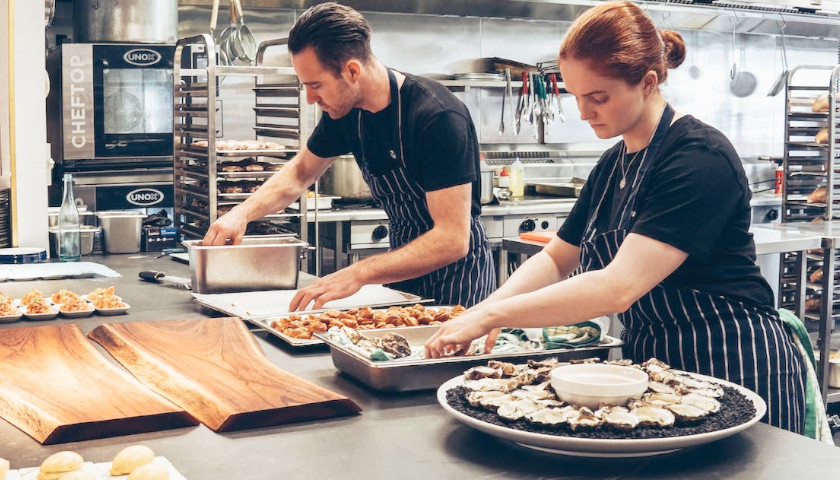by Will Kessler
Small businesses are feeling the effects of the Federal Reserve’s interest rate hikes as tightening credit puts more businesses and workers in dangerous positions, according to The New York Times.
Interest payments for small businesses will rise to about 7 percent of revenues next year on average, as opposed to being just 5.8 percent of revenues in 2021, according to the NYT. The Fed has raised its federal funds rate to a range of 5.25 percent and 5.50 percent following a series of 11 hikes that started in March 2022, bringing the rate to its highest point in 22 years.
“We’ve been in this environment where the best strategy has been to just hold your breath and wait for the cost of capital to come back down,” Gregory Daco, chief economist at the consulting firm EY-Parthenon, told the NYT. “What we’re starting to see is business leaders, and to some extent consumers as well, realize that they have to start swimming.”
The high cost and scarcity of capital thanks to the higher interest rates could prevent small businesses from growing, especially considering they might not have wealthy investors or a home to leverage to provide a source of capital, according to the NYT.
 In 2021, Liz Field built her small business, the Cheesecakery, up to the point where she was ready to expand with the construction of a cafe, acquiring a $434,000 loan at 5.5 percent, leaving her with a $2,400 monthly payment, according to the NYT. By the second half of 2022, her monthly payment had increased to $4,120 due to it being tied to the prime rate that the Fed controls, forcing her to cut 25 employees’ hours and sell some assets to stay afloat.
In 2021, Liz Field built her small business, the Cheesecakery, up to the point where she was ready to expand with the construction of a cafe, acquiring a $434,000 loan at 5.5 percent, leaving her with a $2,400 monthly payment, according to the NYT. By the second half of 2022, her monthly payment had increased to $4,120 due to it being tied to the prime rate that the Fed controls, forcing her to cut 25 employees’ hours and sell some assets to stay afloat.
“That really hurts, because I could have one to two shops for that price,” Field told the NYT about her payments. “I’m not going to be able to open more stores until I get this big loan under control.”
The Fed raised its federal funds rate in an attempt to quell inflation, which peaked at 9.1 percent in June 2022. Inflation has since decelerated but remains elevated above the Fed’s 2 percent target, measuring 3.7 percent for both August and September.
Kristin Pugh is a financial advisor in Atlanta who serves wealthy individuals and provides pro-bono services to lower-income clients, and she sees the effects that the higher interest rates are having on people who can’t afford to pay with cash for many items, according to the NYT.
“Coupled with higher rents and stagnant wages, the pro bono clients are not going to fare as well in higher interest rate environments,” Pugh told the NYT. “It’s just mathematically impossible.”
– – –
Will Kessler is a reporter at Daily Caller News Foundation.





